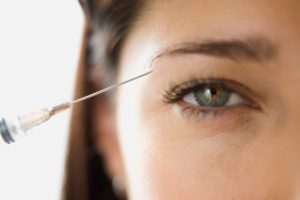 The leading cause of vision loss in people over 50 is a condition called age-related macular degeneration (AMD). As the name suggests, the main reason for developing this condition is simply growing older. AMD often results in loss of central vision in older people, with peripheral vision often spared.
The leading cause of vision loss in people over 50 is a condition called age-related macular degeneration (AMD). As the name suggests, the main reason for developing this condition is simply growing older. AMD often results in loss of central vision in older people, with peripheral vision often spared.
Unfortunately, there is no cure for this condition, with treatment being the only solace for affected individuals. New research into AMD has led to the creation of a revolutionary new treatment option, which is as simple as using eye drops.
Painless vision loss
Advertisement
There two recognized forms of age-related macular degeneration: wet and dry. Both come with the risk of vision loss, but differ in the way they develop. Dry AMD occurs due to the formation of tiny protein clumps called drusen, while wet AMD results from the abnormality of blood vessels in the eye that leads to scarring of the macula. Though rarer that its dry counterpart, wet AMD leads to faster deterioration of central vision, hence it was the focus of the new treatment.
The current treatment for wet AMD involves the use of a medication called anti-vascular endothelial growth factor. This drug helps reduce the number of abnormal blood vessels in the retina. The problem arises with administration of the drug: frequent and unpleasant needle injections directly into the eye itself. Ironically, this procedure also carries a risk of blindness.
Same drug, different delivery
Scientists at the University of Birmingham’s Institute of Inflammation and Aging have invented a method to help bypass this unpleasant delivery procedure altogether and to administer the drug via eye drops. Initial laboratory research has led to the same outcomes as the injection method.
This is essentially the same drug, but the eye drops include a cell-penetrating peptide (CPP) to deliver the medication to the important parts of the eye in a matter of minutes.
“The CPP-drug has the potential to have a significant impact on the treatment of AMD by revolutionizing drug-delivery options. Efficacious self-administered drug application by eye drop would lead to a significant reduction in adverse outcomes and health care costs compared with current treatments,” explained Dr. Felicity de Cogan, a biochemist who led the research team.
Advertisement
She added that the CPP-drug complex may potentially be used in other chronic eye diseases that require drug administration to the back of the eye.
“We believe this is going to be very important in terms of empowering of patients and reducing the cost of treatment to the NHS,” added de Cogan.
Related: Home remedies to reverse age-related macular degeneration naturally
